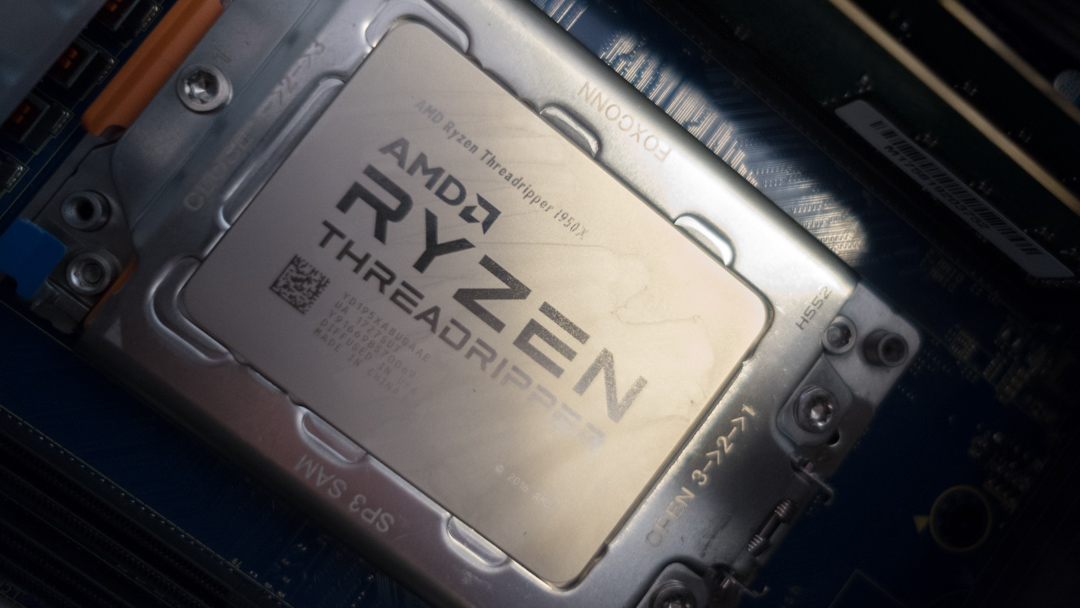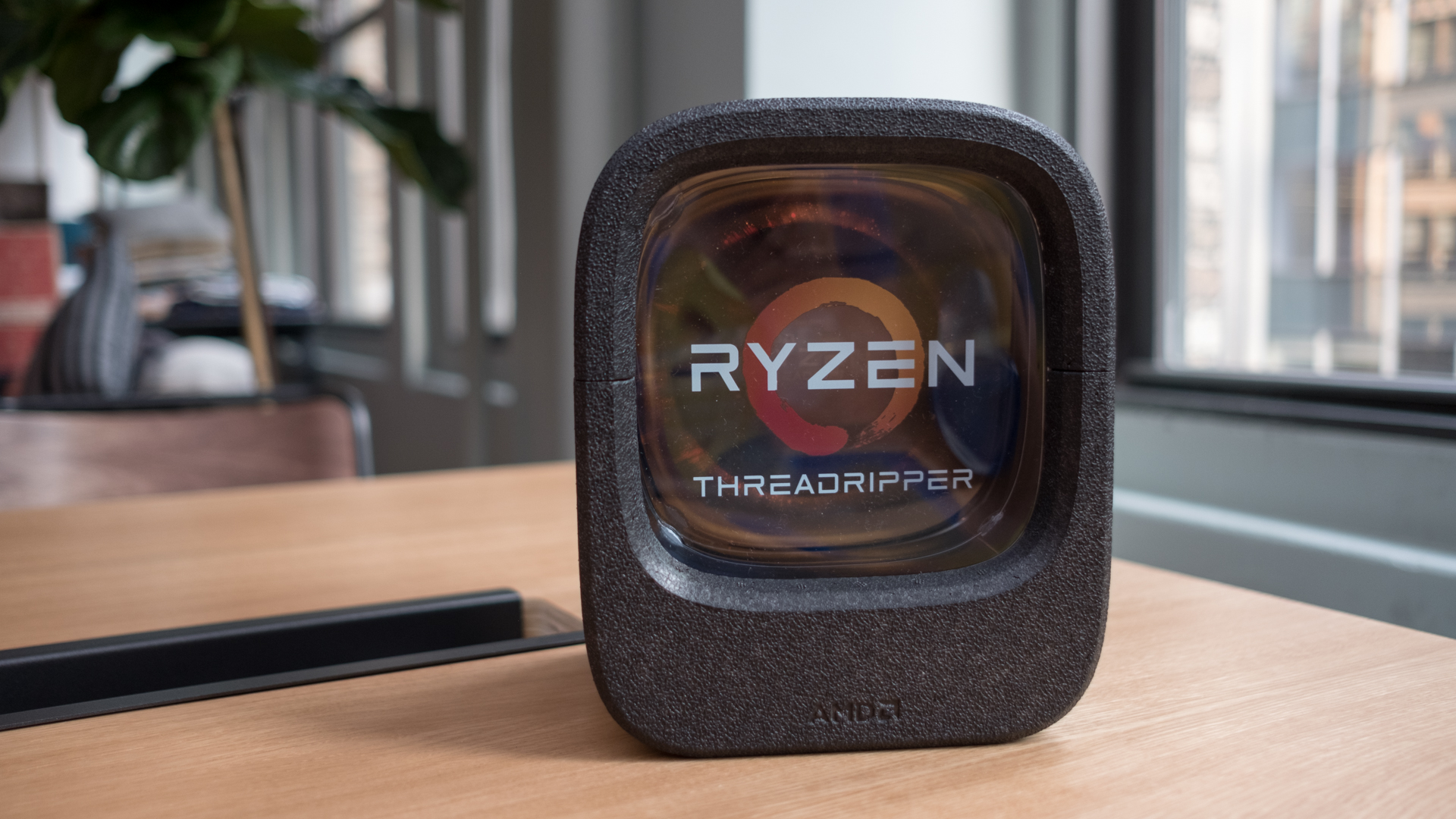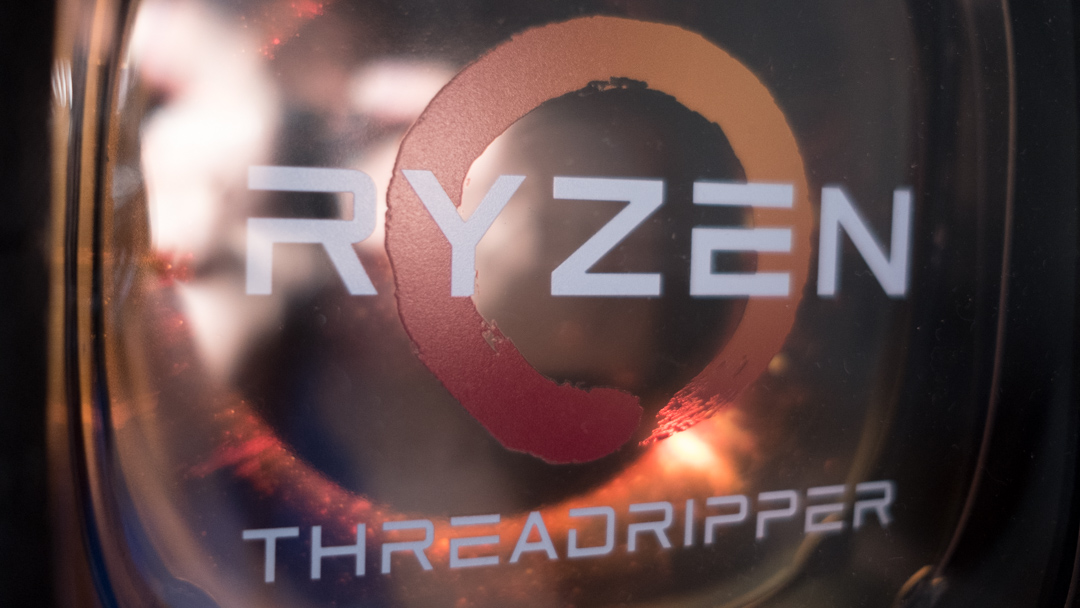While AMD Ryzen 2nd Generation launched in April 2018 and brought notable performance and power improvements. Then, in August 2018, AMD launched Threadripper 2nd Generation, producing the very best high-end desktop (HEDT) processors on the market – well, at least until Intel’s Basin Falls Refresh launched (albeit for a much higher price).
Similar to the move from Ryzen to Ryzen 2nd Generation, the second release of Threadripper gives us a big boost in performance and efficiency. It’s not just core counts that see a boost, but Threadripper 2nd Generation boosts power management and brings higher clock speeds across its lineup. This helps boost the price to performance ratio in chips like the Ryzen Threadripper 2950X.
Ryzen 3rd Generation is on the horizon now, too, and it looks like AMD is ready to repeat its magic with Threadripper 3. Plus, we’re already starting to see some rumors trickle out about the architecture that will be behind Threadripper 4th Generation.
So, now that AMD Ryzen Threadripper 2nd Generation processors have been on the market for nearly a year, we decided to explore everything there is to know about the workstation processors. So, b e sure to keep this page bookmarked – we’ll keep it updated with any Threadripper 2nd Generation information that pops up.

Cut to the Chase
- What is it? AMD’s next generation of high-end desktop CPUs
- When is it out? August 13, 2018
- What will it cost? $649 (about £500, AU$880) for the 2920X – $1,799 (£1,639, AU$2,679)
Ryzen Threadripper Generation 2 release date
Since Computex 2018, we knew that Ryzen Threadripper Generation 2 would launch in the second half of 2018. And, now the entire lineup, including the the Ryzen Threadripper 2990WX and the Ryzen Threadripper 2950X has launched between August and October 2018.

Ryzen Threadripper Generation 2 price
Ryzen Threadripper proved to be a much more affordable line of high-end desktop processors than Intel Skylake-X, and it appears these 2nd Generation chips will continue the trend.
Here’s the pricing of the AMD Threadripper Generation 2:
- Ryzen Threadripper 2990WX: $1,799 (£1,639, AU$2,679)
- Ryzen Threadripper 2970WX: $1,299 (about £1,000, AU$1,755)
- Ryzen Threadripper 2950X: $899 (about £690, AU$1,210)
- Ryzen Threadripper 2920X: $649 (about £500, AU$880)
Although Ryzen Threadripper 2nd Generation introduces two higher-end SKUs to the series, AMD’s new HEDT chips (processors for high-end desktop computers) are actually more affordable than the ones they’ve replaced.
The $899 (about £690, AU$1,210) Ryzen Threadripper 2950X is notably $100 cheaper than the Ryzen Threadripper 1950X that initially launched with a $999 (£845, AU$1,359) price tag. Likewise, the Ryzen Threadripper 2920X runs for $649 (about £500, AU$880) and is also more affordable than its predecessor, the $799 (£689, AU$1,069) Ryzen Threadripper 1920X.
At the top-end of the series, the $1799 (about £1,380, AU$2,430) Ryzen Threadripper 2990WX remains more affordable than Intel’s flagship $1,999 (about £1540, AU$2,700) Core i9-7980XE.

Ryzen Threadripper Generation 2 specs
Thanks to moving to the same Zen+ 12nm architecture used in the recent Ryzen 2nd Generation processors, Ryzen Threadripper 2nd Generation gains better power management, higher clock speeds and most notably a huge increase in possible core counts.
Here’s a quick spec breakdown of the current Ryzen Threadripper 2nd Generation lineup:
- Ryzen Threadripper 2920X: 12-cores, 24-threads, clocked at 3.5GHz to 4.3GHz
- Ryzen Threadripper 2950X: 16-cores, 32-threads, clocked at 3.5GHz to 4.4GHz
- Ryzen Threadripper 2970WX: 24-cores, 48-threads, clocked at 3.0GHz to 4.2GHz
- Ryzen Threadripper 2990WX: 32-cores, 64-threads, clocked at 3.0GHz to 4.2GHz
Of course, the highlight of AMD’s Ryzen Threadripper 2nd Generation lineup has to be the 32-core and 64-thread 2990WX. What’s more impressive is that the CPU is apparently capable of running up to 4.2GHz – a noticeable upgrade over the 1950X top speed of 4.0GHz with half as many cores and threads.
Some may point out that the 28-core processor that Intel showed off at Computex hit 5GHz, but we’re still not 100% sure of the particulars (i.e. cooling setup) surrounding that demo and Intel later clarified it achieved that speed with overclocking.
You may have also spotted the WX suffix at tail end of AMD’s two top-end HEDT processors, and this is to signify a new series of consumer workstation-grade processor meant for creators and innovators. AMD is specifically targeting these two CPUs at creators and innovators such as video editors, those in design and general media creators.
Meanwhile, the X-series Threadripper 2nd Generation processors, the 2920X and 2950X, cater towards streaming gamers who need that extra processing power to drive 4K livestreaming as they game. Once again AMD flexes the strength of its 12nm architecture, by giving us an 2950X that’s 0.3-0.5Ghz faster than the 1950X it replaces, and we haven’t even gotten to overclocking yet.
Luckily, AMD is also sticking to the same TR4 Socket, so anyone looking to upgrade once Threadripper Generation 2 drops shouldn’t have to worry about buying a new board. However, unlike the Ryzen 2nd Generation jump to an X470 chipset, AMD isn’t introducing a new chipset to replace the existing X399 platform – at least in name anyway.
Instead, users will find a few new Ryzen Threadripper 2nd Generation-ready X399 motherboards designed with improved overclocking performance and power consumption. Thankfully, though, older motherboards are compatible after installing the latest BIOS, and it won’t require you to boot them with an original Ryzen Threadripper CPU or UEFI Boot Kits.
Ryzen Threadripper 2nd Generation features
Although Ryzen Threadripper 2nd Generation hasn't jumped to a new chipset, it has got a new bag of tricks thanks to enhanced features and even one that's brand new.
Precision Boost originally controlled CPU frequencies down to 25MHz increments. Now with version two, AMD has sprinkled in an algorithm that ensures the processor intelligently runs at its thermal and electrical limit whenever tasked.
Extended Frequency Range 2 (XFR2) has also seen a significant buff allowing it to enable 16% additional processor performance across any number of cores and threads. On the previous generation of Ryzen Threadripper chips, XFR could only influence a small number of cores.
Lastly, Precision Boost Overdrive (PBO) is a brand new feature that allows AMD's newest HEDT CPUs to exceed their specifications and max out their power draw from the abundant VRMs on X399 motherboards. Though users will technically void their warranty by doing so, PBO can help users achieve overclocks hitherto undreamt of.
AMD itself achieved a 5.1GHz overclock across all 32-cores with a liquid-nitrogen cooled processor.
AMD Ryzen Threadripper 2nd Generation Performance
We finally got our hands on the AMD Ryzen Threadripper 2990WX, and we have to say: the performance is phenomenal. While a lot of the benchmarks need to be updated to recognize the bonkers amount of cores that the 2990WX offers, you can basically throw any workload at the 2990WX and have a ton of performance to spare.
Where the 2990WX falters is in its gaming performance. It falls behind the much more affordable Intel Core i7-8700K and the Ryzen 7 2700X, but that should be expected. Do us a favor – don’t spend $2,000 on a processor for gaming, it’s just not worth it. Buy two RTX 2080 Tis instead.
Then, there’s the AMD Ryzen Threadripper 2970WX. At $1,199 (£1,199, AU$2,729), it does keep up with other HEDT processors like the 2990WX or the Intel Core i9-7980XE. However, oddly enough, it’s beaten out by the Intel Core i9-9900K in a lot of workloads. This is worrisome because of just how much cheaper Intel’s mainstream Core i9 is.
Even if the Ryzen Threadripper 2970WX does beat Intel’s chip in heavily multi-threaded tests like Cinebench, the value just isn’t there right now. So, unless your workload specifically demands all the cores and threads you can get, like say, if you’re working in an animation studio – you might want to look at the Intel Core i9-9900K and save a couple bucks.
from TechRadar - All the latest technology news http://bit.ly/2RtsyAC
via IFTTT


0 comments:
Post a Comment